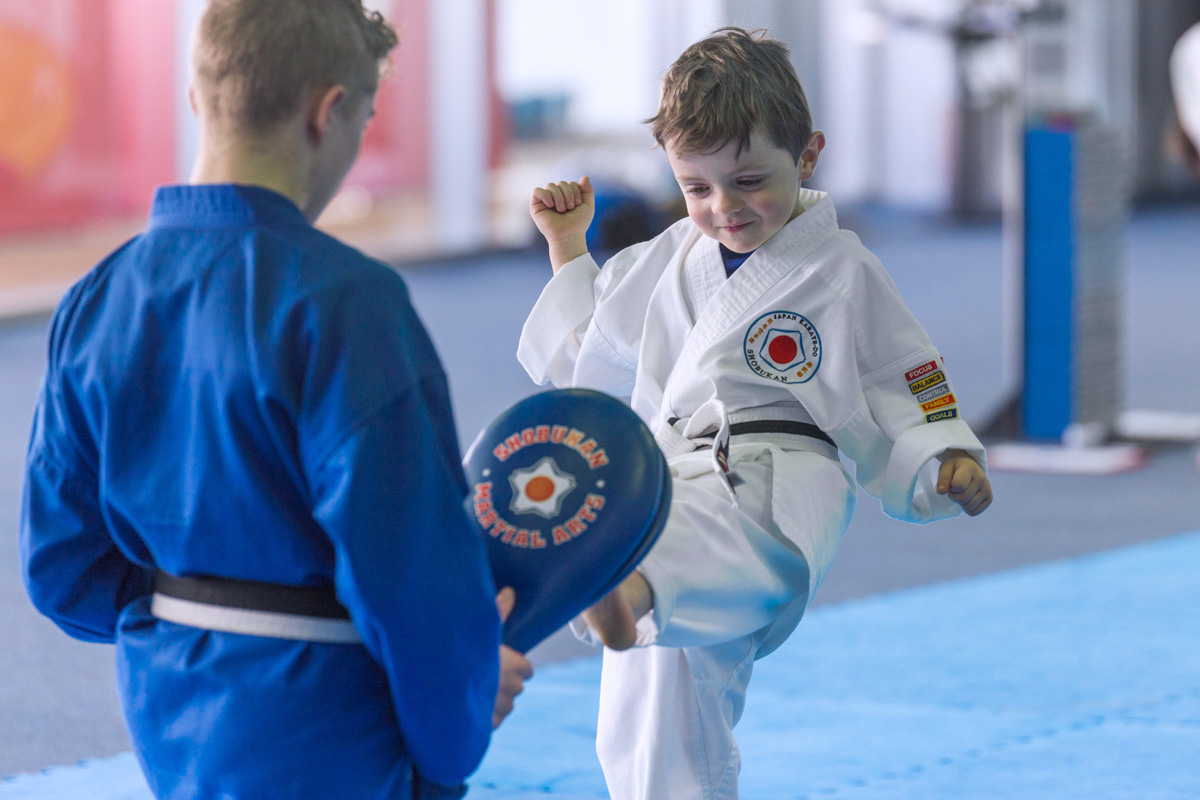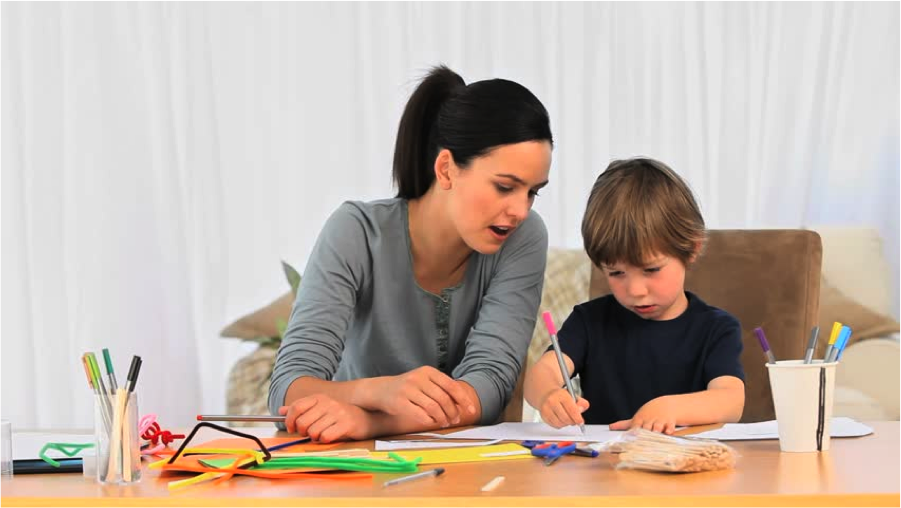
The Burning Question
Do you owe your children self-confidence?
You might think that children are still in the process of developing themselves and self-confidence is not important at this point. But you couldn’t be further from the truth. In reality, children look to their parents and peers for validation and appreciation.
Self-esteem, in its simplest definition, is how you feel about yourself. When children feel confident about themselves they show interest in school activities, hobbies, etc.; they believe in themselves and their abilities. But at times children are misunderstood by their peers or even by their parents. This is when they start to receive negative feedback. It makes them feel like their efforts will lead to failure. They don’t believe or have any clue about their abilities. Sadly, this can make even the brightest of children suffer.
Self-esteem develops through different stages of your child’s life but its seeds are to be sown in childhood. Adults who have been abused or who have been neglected during their childhood, tend to develop very low self-esteem. They tend to be shy and often don’t believe they are not worthy even if they are told so.

Children who do not have sufficiently developed self-esteem tend to succumb to peer-pressure to gain approval. According to the National Mental Health Information Center, children with a healthy self-esteem deal with responsibility better. They are also less likely to break down during life’s ups and downs. They can deal with strong emotions and cope with challenges and frustrations easily.
Therefore it is important to let their self-esteem grow. So how can we do this?
We have discovered 12 extremely effective ways to increase your child’s confidence, which will ultimately boost their self-esteem.
1. Set time aside to play with your children.
Playtime with your children will give them the message that they are important and valuable as they are. You will learn so many things about your child when you play with them. It will be an important exchange. It is known to all that children learn the best through play, hence, when you are setting aside time to play with them, you also have an excellent opportunity to make them feel accomplished and important. See it as an important investment in the behaviour and confidence of your child.

Let the child initiate the play.
If the child initiates it, it will hold their attention longer. If the child chooses what they want to play, it will make them learn better. Also, the child’s initiated play will increase their sense of self-worth: “Dad likes to play as I do!” One thing might happen is that you may get bored of the activity long before your child does. If this happens, you can add new twists or turns into the game. “Let’s turn this shade into a parking garage!” Kids are much faster in appreciating new ideas that are presented to them.
Focus your attention on your child.
Focus all of your attention on your child during your play time. Don’t talk about how your work went; if your child senses that you have tuned out during your sessions, it won’t be of any value. Give your child your undivided attention at least at some time during the day – that is the goal here.
2. Scrutinize your child’s social circle.
Sometimes we think that merely throwing your child with a bunch of other children will enable them to make good friends. That doesn’t often seem to work because, at such a young age, children have no idea which company is good for them and which is not. Moreover, whatever wrongs the other person may be doing to them, they tend to think it as their fault.
What you need to do as a parent is let them make their own friends and analyze how it turns out. Are they upset more often now? Do they seem timider? Or are they becoming brighter and stronger? It is important to notice these tiny little things when they are entering new social groups or making new friends.
Sometimes it is okay to allow your shy child to make friends with a stronger personality unless the stronger person harms or bullies your child. You can then step in to control the situation.
One mother rescued her child from a junior racketeer that was blackmailing her son to steal money from her purse. “Our frightened Kevin was way in over his head and was relieved when we intervened.” She became suspicious when a phone call from his classmate came in and she listened in to the call in detail. It saved her son from going down the wrong path.
Even though such a drastic thing may not happen with you, such things are common and you have to protect yourself and your child from such incidents at all costs.

3. Don’t overpraise your children.
While it seems like the easy way out, praising your children, or rather “overtly” praising them is never a good idea. Self-esteem comes from a very genuine feeling of being appreciated and loved and from developing competence. The thing with competence is that you cannot compliment your child into being competent.
If you continuously praise your children, you lower the bar for them. If you keep telling them they are doing a great job, you are saying that they do not need to push themselves further. Confidence comes from failing and trying and trying again. To do this, your child needs a drive – which only comes from a passionate desire to achieve. This is what you cannot grow. You can sow the seeds for competence via telling them they are capable of achieving their dreams – and leave it at that.
In fact, some experts believe that compliments can actually erode self-esteem. If your son can’t spell correctly and you are praising him for it, then he is going to get the idea that praise is simply lying and he is also not going to learn to trust his own instincts. Instead, appreciate your child for what they have genuinely done really well, however, love them unconditionally none the less. If your child feels like they can get your love only when they perform well, they are going to become a very approval seeking adult – which is a typical sign of low self-esteem.
On the other hand, continuously telling your child that they are the most talented or the smartest is a very bad idea – you are inflating their ego and they are going to become an egomaniac, and soon they will discover that they are none of those things that they were once told.
4. Allow them to take healthy risks instead.
It may be hard at first, but teach your children to take healthy risks while you stand back. In today’s world, children have to take risks, chances and make choices and also learn to take responsibility for them. This is also a very big lesson which teaches children accountability. Parents are often trying to rescue their children from failure – let them fail and encourage them to try again.
A shining example of this would be a five-year-old child named John. His mother set a great example by just standing there when he picked up a huge jug of juice and tried to pour it into the glass. His mother just watched as he did that. Inevitably he spilled the juice all over the floor. But the best part was that immediately after he spilled the juice a waitress had come to help him but he had already picked up a paper towel and was cleaning his own mess. This is the responsibility that children must be taught.
Successful adults solve their own problems as little John did there. It is a sign of having a healthy self-esteem and being able to take responsibility for your own actions.

5. Take steps to ensure your children are physically active.
“Well children are naturally active and keep running around all the time, so that’s a no-brainer” – If that’s what you’re wondering, then you need to get a reality check.
In today’s digital age, there are often more chances of your child starting to lead a sedentary lifestyle just playing around with their gadgets in the living room or having long phone calls with their friends. That may be a red flag which could potentially lead to childhood obesity.
An active body keeps the mind healthy and also builds your child’s immune system. So the onus is on you to ensure your child is doing some form of physical activity for at least an hour a day.
Some children are naturally good at sports or other physical activities while others aren’t. If your children fall into the latter category, just nudge them to practice any form of physical exercise that they are comfortable with. The simplest ones to start off with would be aerobic activities or bone strengthening routines.
If your child likes a particular sport, make sure you play with them every day for at least 30 minutes. However just make sure that the physical activity that you choose is safe, fun and age-appropriate for your child. Otherwise, your child may start hating the entire concept of physical activity.

6. Give them responsibilities.
Children need to do chores. One of the best ways to increase self-confidence in children is to give them some things to do around the house. They learn family values by taking care of the living areas – whether indoors or outdoors. It makes them feel more important and it also channels their energy and behaviour into practical life.
Start early.
Children can do some small tasks around the house from around the age of three. To ensure that their interest is held in the task, choose a task that they want to do. For example, some children like to play with napkins. So you can ask them to put the napkins in place before dinner time.
Starting from such a young age, the children can learn the responsibility they have towards their own belongings, towards themselves and towards their parents. Once a child learns the responsibility of these things, they will slowly learn to care about the society they live in eventually as they grow older.

7. Help them acquire skills and talents.
Put them in a karate school or any other martial arts class. Activities such as martial arts are very important in teaching discipline, mind-body focus, and concentration. It is also extremely valuable in building confidence. As the child becomes confident that they can protect themselves physically against that school bully or against any ill-element. A different kind of confidence grows that is not otherwise seen.
Many parents often misconstrue that martial arts promote violence in children making them aggressive. However, parents of attention-deficit children, as well as those with hyperactivity disorder (ADHD), find out that martial arts actually help their children attain self-control and focus, discipline, and important socializing skills.
When you get your child enrolled in a martial arts class, they start off at a set time, first with warmups, and then with blocks, kicks, and punches. Each of them requires focus, concentration, and self-discipline.

The thing you need to be aware of is that not every martial arts training is for everybody. Whether it’s kickboxing, karate, judo, taekwondo, or something else, each one has its own set of challenges. It’s advised to speak to the martial arts trainer first before enrolling your child into a random martial arts class.
Any type of talent needs recognition. If you notice that your child is good at something, encourage them to do it. Strike a balance between pushing and protecting. This is very important for a parent to learn. If you don’t push your child to try, their skills won’t improve and you will lose a very valuable instrument in building confidence.
Having said that, you don’t want to have unrealistic expectations. Protect yourself and your child from it because otherwise their sense of competition will be threatened severely. Children have this habit of measuring their value by seeing how others perceive them.
In today’s measuring and testing society, our children’s skills are measured against others. Your child may be good at something but they will feel like a lost cause if their friends are doing better. So how can you tackle this? You have only one way to deal with this – let them know that you value them for who they are and not for how well or badly they perform.
There is one thing your child can excel at and that is being themselves. Make sure that you encourage your child to be the same. The martial arts belt system is an ancient tool that rewards children for their commitment and efforts. Everyone achieves badges and belts for skills and activities. Everyone is a winner. This will give them a lift – especially if their self-esteem is down and their confidence is low.

8. Encourage your child to express feelings and not bottle them up!
Adults who have low self-esteem often believe their feelings are unwarranted. Their feelings have developed abruptly after being locked away over time, and they often feel uncomfortable expressing their true emotions. To raise a confident child you have to teach them to express their feelings comfortably and let them do so in a safe environment.
Expressing their feelings does not mean imploding at every opportunity they get – in fact it’s exactly the opposite. It is the good balance they have between expressing and controlling their emotions. Your child should eventually be able to keep a lid on his or her feelings but not so much that he or she cannot express herself even in the presence of a close friend.
A child with unattended emotions becomes a brat. A child who can never express their feelings becomes reserved. Too much control over your child’s emotional state will bring about a problem in the future. On the contrary, they could also get the message that you don’t care about their emotions.
Sometimes the problem escalates when parents tell their children, “I don’t want to hear such stupid rants!” or “Shut the hell up!” – These are devastating to a child’s self-worth. They learn to stuff their emotions due to fear of being told off by their parent.
On the other hand, if your child comes up to you saying “Dad the bracelet grandma gave me broke!” Dad looks up from his desk, puts a hand on their shoulder and tells them “I am sorry, that was such a special bracelet!” his verbal tone and body language both convey “I am available to you and your feelings are important to me. You are important to me.” This child will grow up with healthy boundaries and good self-esteem.

9. Make sure your child’s goals are reachable.
This may mean asking them to join the math club that they can ace rather than the football team that they signed up for but may struggle with. Once again you have to draw the fine line between pushing and encouraging. If something interests them let them do that. They will learn with trial and error but also ask them to pursue what you think they will be best at.
Initially, your child may be reluctant to try out something new, especially if they have low self-esteem. But you have to keep pushing them to succeed.
You can try it today – just tell them “why don’t you go to _____ practice today?” They may show a lack of interest or simply lethargy in doing it, but don’t be discouraged by that. Ask them again and take steps to actually get them to that practice yourself.

10. Set an example.
Children will always learn the best by seeing their parents. Therefore you will have to set an example of good self-esteem. You have to mirror the self-confidence that you are trying to teach them. The parents who have been abused or neglected during their own childhoods suffer the most from this problem as adults. For them, it is essentially important to heal their childhood wounds. If necessary and possible, attend some healing classes or therapies.
If you want to teach your child something you have to imbibe those qualities within yourself, that is a given. Certain parenting traits like anger, fear-fulness, etc. are learned in each generation. Having a child is the opportunity to become the parent you wish you had.
But no one can put on a happy face all the time. Your child looks to you to mirror his or her feelings. If you are worried, then you cannot expect positive feelings in your children. If you are faking it, they will know – children are very sensitive and they pick up on our feelings better than we know.
Try to be confident in yourself from today onwards. Tell yourself in the mirror “I am worthy, I am loved, and I deserve happiness.” Let this be your mantra. Slowly as you improve, your child will also improve along with you.

11. Encourage your children’s socialization.
If your child’s friend comes to your house for play time – don’t put them down to the idea. You need to teach your child to mix with others, which is very important in the future. By finding their place in social groups, your child will learn to naturally be more confident themselves.
So this week if your child asks if she can have a sleepover with her friend Jessica, reply in the affirmative. But ensure that the child who is spending time with yours is confident but also empathetic. They must be teamed up with other children that have healthy self-esteem themselves.
12. Encourage them to take up leadership opportunities.
There is literally no better way of increasing their self-esteem than by becoming a leader. The possibilities for leadership are truly infinite. It could be being the class monitor or the student who has the special key tasks assigned to them to complete each day, a sports captain, etc. You can also ask some of the children with low self-esteem to make announcements at the P.A. system in the morning. You can also talk to the school authorities to ask them to cooperate with you in assigning tasks to your child.
Children will see value and importance in themselves if you are encouraging them to take up leadership roles during group activities. Therefore, you can do this today – by asking them to lead their siblings, etc. at home.
How much is too much?
Parents often misunderstand the meaning of self-esteem. They either tell them “You are not flat, you are just being challenged” or they totally disregard that self-esteem is a thing they have to develop in their child. Thinking that compliment alone can build your child’s self-esteem is not only wrong but also dangerous.
Don’t feel guilty if you didn’t do these earlier. You don’t need to have a degree in psychology to build your child’s self-worth. Parenting can be simple, fun, and engaging. Just try any one of these today and see how it works out for you and your child.
Good luck!
© Shobukan Martial Arts
